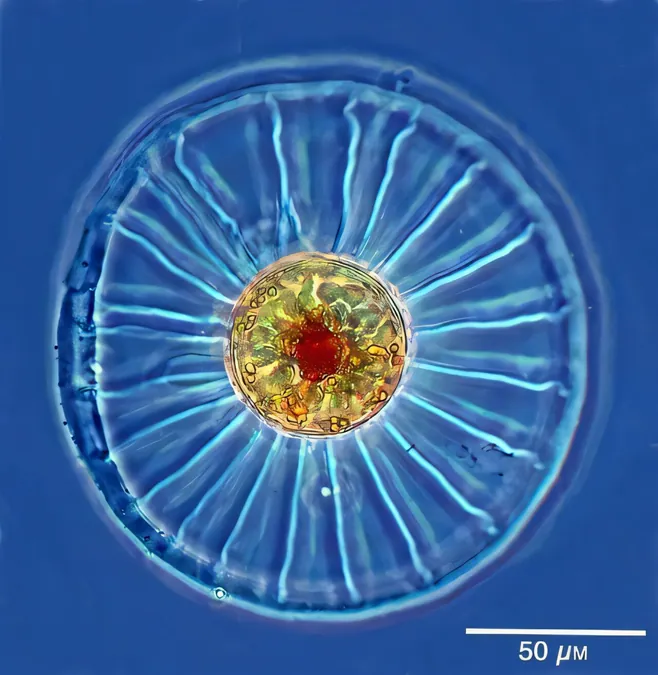
Unlocking Nature’s Secrets: How Phytochromes Help Microalgae Navigate the Ocean Depths
2024-12-18
Author: Wei Ling
Introduction
Microalgae, the unsung heroes of our oceans, are foundational players in marine ecosystems and significantly influence climate regulation. Remarkably, these tiny organisms not only absorb carbon dioxide but also generate about 50% of the oxygen we breathe through the process of photosynthesis. Yet, despite their importance, the factors governing their distribution in the ocean remain a mystery.
Groundbreaking Research
Recent groundbreaking research by scientists at the CNRS and Sorbonne University sheds light on this enigma, specifically focusing on diatoms, a prominent group of phytoplankton. These researchers have unveiled that diatoms possess specialized sensors known as phytochromes encoded within their genomes. These unique photoreceptors allow the microalgae to perceive changes in the light spectrum as they drift through various depths of the water column.
The Importance of Phytochromes
This capability is crucial, particularly in turbulent aquatic environments—such as those found in higher latitudes, temperatures, and polar regions—where significant water mixing occurs. In such dynamic conditions, being able to gauge their vertical position enables diatoms to optimize their biological functions, most notably photosynthesis.
Exciting Findings from Tara Oceans Project
In an exciting twist, the team analyzed environmental genomic data from the Tara Oceans marine sampling projects and made a fascinating discovery: phytochromes are present exclusively in diatoms located beyond the Tropics of Cancer and Capricorn. These regions are characterized by pronounced seasonal changes and varying day lengths, hinting that phytochromes not only assist in navigation but also help these remarkable organisms track the changing seasons.
Looking Ahead
Given these revelations, scientists are now pivoting their research to explore how these genetic adaptations might affect the diatoms’ capacity to respond to climate change. With ocean conditions rapidly evolving, understanding how microalgae adapt is more important than ever. This knowledge could hold the key to preserving marine ecosystems and their critical roles in global climate health. Stay tuned—there's more to discover about the astonishing world of microalgae and their fascinating light-detecting abilities!




 Brasil (PT)
Brasil (PT)
 Canada (EN)
Canada (EN)
 Chile (ES)
Chile (ES)
 España (ES)
España (ES)
 France (FR)
France (FR)
 Hong Kong (EN)
Hong Kong (EN)
 Italia (IT)
Italia (IT)
 日本 (JA)
日本 (JA)
 Magyarország (HU)
Magyarország (HU)
 Norge (NO)
Norge (NO)
 Polska (PL)
Polska (PL)
 Schweiz (DE)
Schweiz (DE)
 Singapore (EN)
Singapore (EN)
 Sverige (SV)
Sverige (SV)
 Suomi (FI)
Suomi (FI)
 Türkiye (TR)
Türkiye (TR)